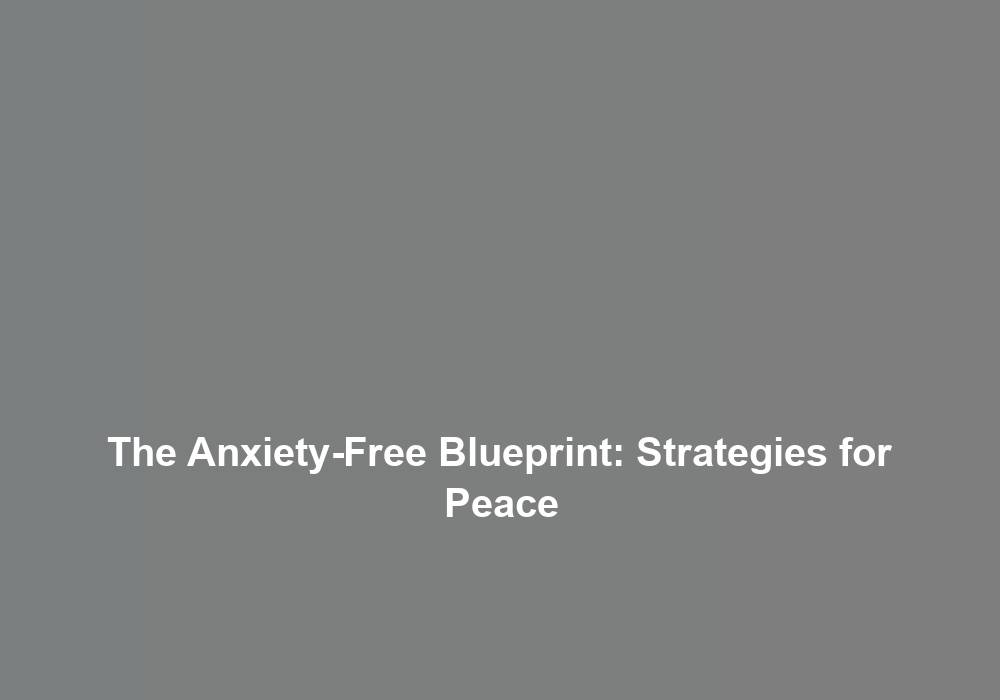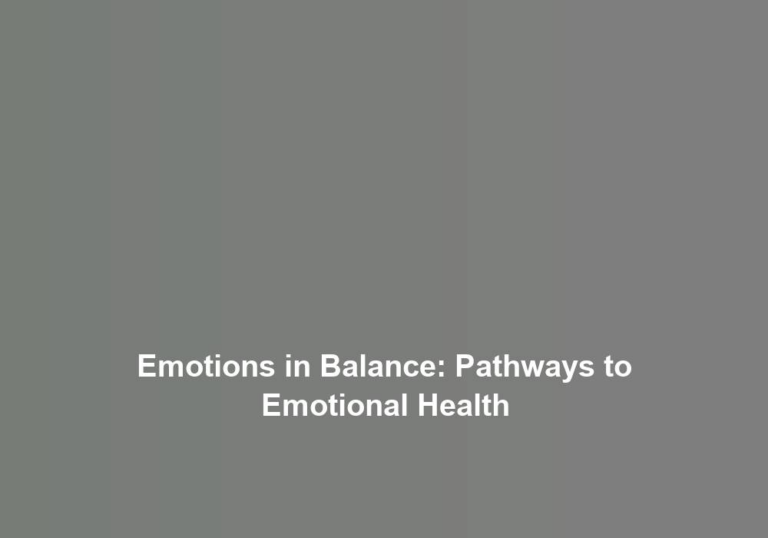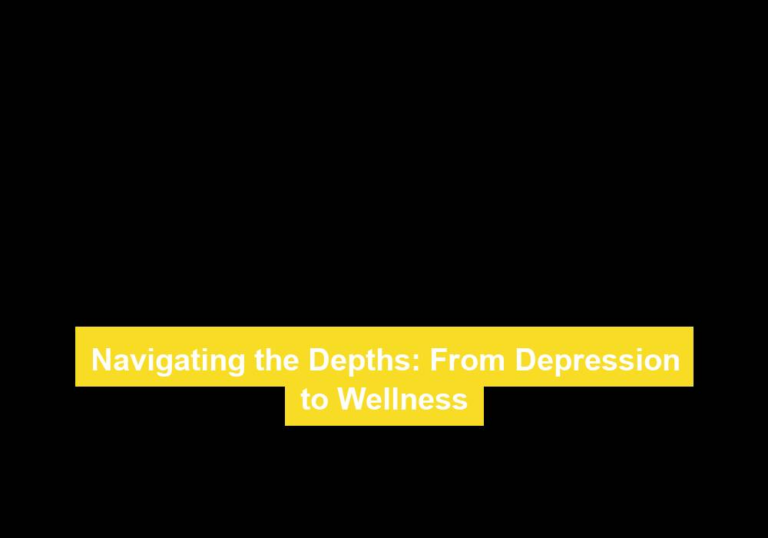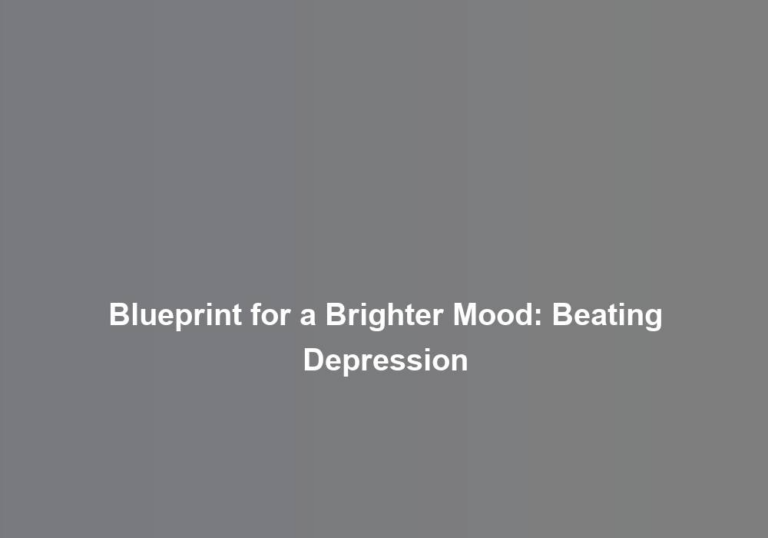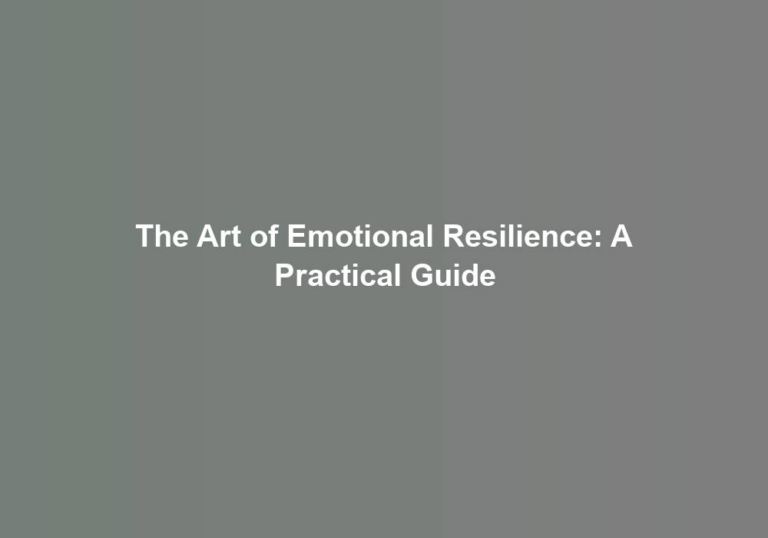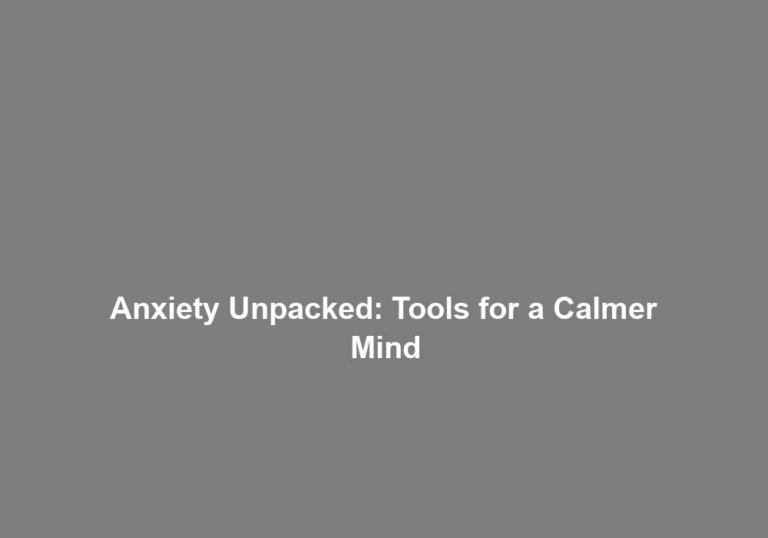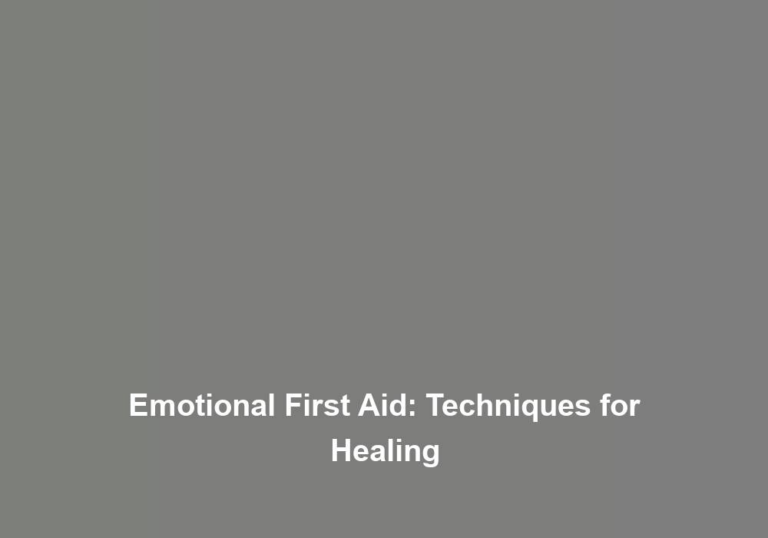The Anxiety-Free Blueprint: Strategies for Peace
When it comes to finding peace in a world filled with chaos, the old saying G??calm seas never made a skilled sailorG?? holds true. You may have found yourself feeling overwhelmed and anxious at times, seeking a way to navigate through the storm and find a sense of calm. The Anxiety-Free Blueprint offers practical strategies to help you regain control and find peace in the midst of lifeG??s challenges. By implementing these strategies, you can embark on a journey towards a more tranquil and harmonious way of being.
Understanding Anxiety
Understanding anxiety is crucial for developing effective strategies to manage it and improve your overall well-being. ItG??s important to recognize that anxiety is more than just feeling stressed or worried; it is a complex interplay of thoughts, emotions, and physiological responses. Cognitive therapy, a common approach to treating anxiety, focuses on understanding and changing the patterns of thinking that contribute to anxious feelings. By identifying and challenging these negative thought patterns, you can learn to manage anxiety more effectively.
Anxiety triggers are situations, thoughts, or feelings that can bring about or worsen feelings of anxiety. These triggers are different for everyone, and recognizing your own triggers is a key step in understanding your anxiety. Cognitive therapy can help you identify these triggers and develop coping strategies to manage them. This might involve reframing negative thoughts, practicing relaxation techniques, or gradually facing feared situations to build confidence.
Mindfulness Practices
Now that you have a better grasp of anxiety triggers and cognitive therapy, letG??s explore how mindfulness practices can provide valuable tools for managing anxiety and promoting inner peace. When it comes to mindfulness, meditation techniques and breathing exercises are essential for calming the mind and reducing anxiety. Meditation can be as simple as finding a quiet space, closing your eyes, and focusing on your breath. As you breathe in and out, allow your thoughts to come and go without judgment. This practice helps to ground you in the present moment and release worries about the past or future.
Another effective mindfulness practice is engaging in deep breathing exercises. By taking slow, deep breaths, you signal to your body that it is safe and can relax. One technique is the 4-7-8 breath, where you inhale for 4 counts, hold your breath for 7 counts, and exhale for 8 counts. This rhythmic breathing pattern activates the bodyG??s relaxation response, counteracting the stress response that often accompanies anxiety.
Incorporating these mindfulness practices into your daily routine can significantly reduce anxiety and promote a sense of calm. Whether itG??s taking a few minutes in the morning to meditate or practicing deep breathing exercises before bed, these techniques can help you regain control over your thoughts and emotions. Remember, the more you practice mindfulness, the more it becomes a natural part of your life, leading to greater peace and tranquility.
Stress-Reducing Exercises
To reduce stress and promote relaxation, incorporating physical exercises into your routine can be highly effective. Engaging in regular physical activity not only benefits your physical health but also has a significant impact on your mental well-being. When it comes to stress-reducing exercises, focusing on activities that emphasize mindfulness and deep breathing can provide a sense of calm and help alleviate tension.
Breathing techniques are a fundamental component of stress reduction. Practicing deep breathing exercises, such as diaphragmatic breathing or the 4-7-8 technique, can help activate the bodyG??s relaxation response, leading to a decrease in stress and anxiety levels. By consciously controlling your breath, you can bring your attention to the present moment and create a sense of tranquility within yourself.
In addition to breathing techniques, integrating meditation practices into your exercise routine can further enhance your ability to manage stress. Mindful meditation, in particular, encourages the cultivation of present-moment awareness and the acceptance of thoughts and feelings without judgment. This practice can help you develop a greater sense of inner peace and resilience in the face of stressors.
Whether itG??s through yoga, tai chi, or simply going for a mindful walk, incorporating stress-reducing exercises that prioritize breathing techniques and meditation practices can significantly contribute to your overall well-being. By making these activities a regular part of your routine, you can proactively manage stress and foster a greater sense of calm and balance in your life.
Lifestyle Adjustments
Consider making adjustments to your daily habits and routines to create a more conducive environment for managing stress and promoting peace of mind. By incorporating healthy habits and relaxation techniques into your lifestyle, you can significantly reduce anxiety and improve your overall well-being. Here are some simple lifestyle adjustments that can make a big difference:
-
Establish a Consistent Sleep Schedule: Prioritize getting 7-9 hours of sleep each night by going to bed and waking up at the same time every day. Quality sleep is essential for mental and emotional resilience.
-
Mindful Eating: Practice mindful eating by savoring each bite, paying attention to hunger and fullness cues, and choosing nourishing foods that support your overall health. Eating well can positively impact your mood and energy levels.
-
Regular Physical Activity: Engage in regular physical activity that you enjoy, whether itG??s going for a walk, practicing yoga, or dancing. Exercise releases endorphins, which are natural stress fighters.
-
Digital Detox: Set aside dedicated time each day to unplug from electronic devices and engage in activities that promote relaxation, such as reading, meditating, or spending time in nature. Disconnecting from technology can help reduce mental clutter and promote a sense of calm.
Building Supportive Relationships
As you adjust your lifestyle to promote peace of mind, cultivating supportive relationships can further enhance your overall well-being and provide invaluable emotional support during challenging times. Building and nurturing relationships with trustworthy friends who genuinely care about your well-being is essential for creating a strong support system. Open communication within these relationships allows for the sharing of thoughts, feelings, and experiences, fostering a sense of belonging and understanding.
| Supportive Relationships | Benefits |
|---|---|
| Trustworthy Friends | Provide empathy and understanding |
| Open Communication | Fosters a sense of belonging |
Having trustworthy friends means having individuals who are there for you in times of need, offering empathy, understanding, and a non-judgmental ear. These individuals create a safe space where you can express yourself freely, knowing that your feelings are validated. Open communication within these relationships allows for the exchange of thoughts and emotions without fear of criticism, promoting a sense of belonging and acceptance.
Creating and maintaining supportive relationships takes effort and commitment, but the benefits are immeasurable. These connections provide a sense of security, comfort, and joy, and knowing that you have a network of trustworthy friends who support and uplift you can significantly reduce feelings of anxiety and stress. By fostering these relationships, you are building a strong foundation for your mental well-being, ensuring that you have the emotional support you need to navigate lifeG??s challenges.
Conclusion
So, now you have the tools to conquer anxiety and find peace in your life. Remember, youG??re not alone in this journey. Take a breath, practice mindfulness, and lean on your support system. YouG??ll find that the more you focus on reducing stress and making positive lifestyle adjustments, the more youG??ll feel in control of your anxiety. YouG??ve got this. Embrace the peace thatG??s waiting for you.

